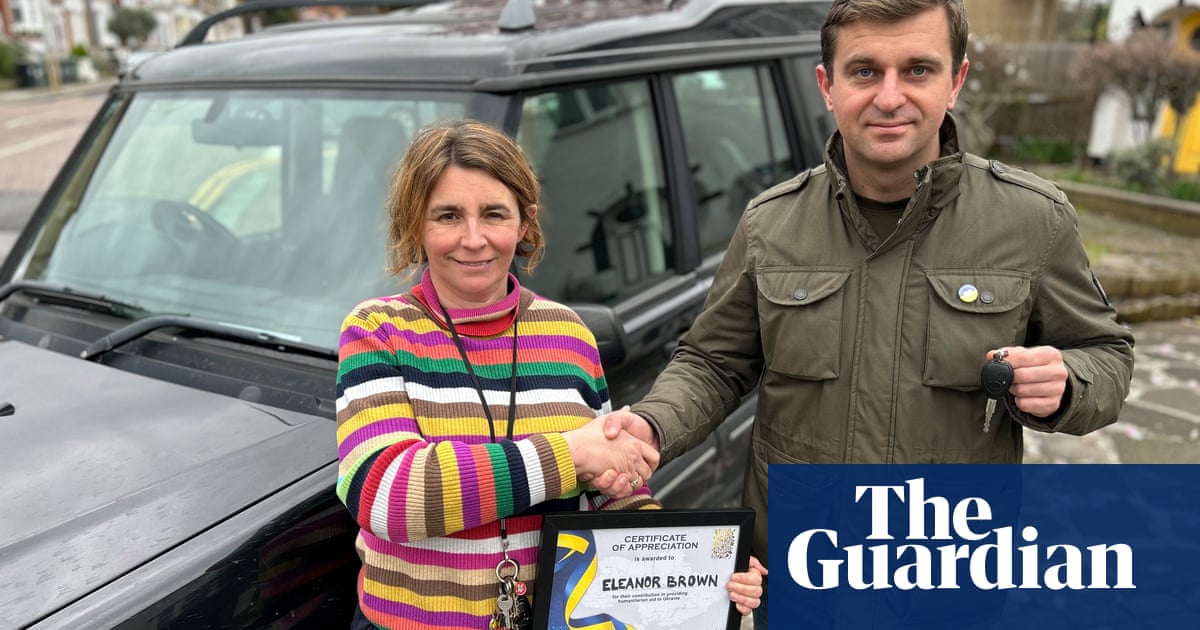
Drivers looking to get rid of cars that do not comply with London’s ultra-low emission zone (Ulez) criteria can now opt to donate them to Ukraine starting this Friday. The launch marks the end of a long effort to gain approval from both the mayor and national government.
The initial proposal was made more than a year ago, but it was initially turned down by the Mayor of London, Sadiq Khan, due to legal reasons. After persistent and at times tense efforts to persuade, the proposal was eventually approved by the transportation department.
Those who own cars, vans or minibuses and reside or operate a business in the capital are eligible for a scrappage payment from Transport for London (TfL) – with the maximum amount being £2,000 for a car. Alternatively, they can choose to donate the payment to Ukraine for humanitarian and medical causes.
Owners of vehicles are required to submit an additional request to British Ukrainian Aid, a non-profit organization collaborating with TfL. If the request is granted, volunteers will collect the vehicle and transport it through Europe for use in humanitarian efforts.
There is a shortage of vehicles in Ukraine, especially in the areas close to the front lines. Regular cars and vans are being used to transport injured individuals from the battlefield and medical facilities to hospitals. The mayor of Kyiv, Vitali Klitschko, is supporting the London initiative.
This approach is defended by those involved in creating the scheme as a justified response to the Russian invasion. It entails not removing high-emission vehicles from circulation, but rather sending them to a war zone.
“Ukraine’s goal is to achieve the same level of air quality as us. However, when one is struggling for survival, it becomes a more pressing concern. The significance of these vehicles is that they will help save lives in the short term,” stated Richard Lofthouse, a communications professional and former academic.
After purchasing a Ford Ranger that did not meet Ulez standards, Lofthouse was inspired to implement a donation option in the scrappage scheme for non-compliant vehicles. He enlisted the help of Klitschko’s office, who then negotiated with Khan about the possibility of this option.
In December, Khan followed the advice of his lawyers and informed Klitschko that altering the plan was beyond his jurisdiction. He explained, “Sending vehicles to Ukraine would not satisfy the necessary legal requirements to prove its benefits to the people of London,” and therefore, the plan could not proceed.
The letter was obtained by Lofthouse and leaked to the Daily Telegraph, prompting the columnist Charles Moore to question if Khan was “under some sort of pressure from Russian interests” or “worried about a backlash from Islamist political activists” – before concluding that neither was very likely.
Those with inside knowledge of City Hall expressed concerns about the harshness of the criticism, noting that while Khan had initially been supportive, concerns were brought up by internal lawyers. In December, the mayor and former defence secretary Ben Wallace joined forces to urge the government to alter the legislation.
After one month, Mark Harper, who is in charge of transportation, announced that there were no legal obstacles to implementing the plan. The Ukraine vehicle donation program was then organized within two months.
“I have promptly made modifications to our scrappage program,” stated Khan. In addition, 50 retired ambulances will be sent to Ukraine. Officials from the mayor’s office suggest expanding this option to other cities with scrappage schemes, including Birmingham and Bristol.
Source: theguardian.com


















